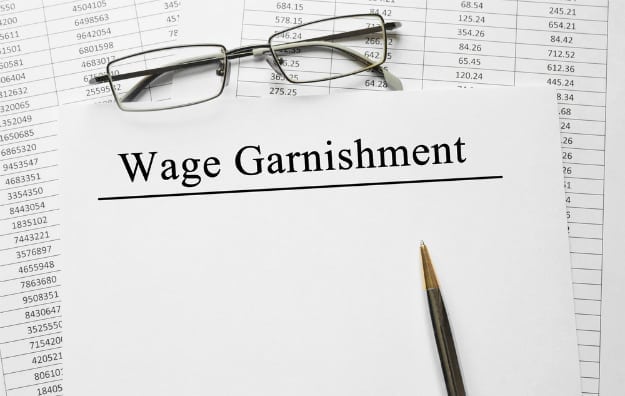Wage garnishment is a legal procedure to pay off debt by withholding a person’s salary.
Both federal loans and private lending companies have the right to conduct wage garnishments.
In fact, students aren’t the only ones that are affected, but also parents who took out loans for their kids.
Even those who cosigned the loan.
Find out how wage garnishment works as well as the garnishment limits by reading further below.
What’s Behind Wage Garnishment in Student Loans?
What Are Administrative Wage Garnishments?
Administrative wage garnishments do not need a court’s judgment allowing the government to garnish a person’s wages.
15% of your disposable income will go towards your garnishment.
Disposable income is considered anything that remains after deducting all withholding amounts mandated by law.
Before a wage garnishment, the Department of Education will send a notification first.
A hearing entitles the borrower to challenge any existing debt amount as well as the repayment schedule terms.
There is, however, a 30-day period upon receipt of notice before requesting a hearing.
(Pro Tip: Need a bird’s eye view of all the options available for student loan repayment? Download the 8-Plan Cheat Sheet. to Student Loan Repayment for free. Click here to learn more and grab your free copy.)
Calculating Wage Garnishment

The maximum garnished amount for a given workweek or period of pay is set up by the law.
This is regardless of how many garnishments the employer received.
Ordinary garnishments don’t exceed 25% of the disposable earnings of an employee.
This also means the amount wherein the disposable incomes of an employee exceeds 30x than the federal minimum wage.
The calculation follows the Federal Minimum Wage currently set to $7.25.
Wage Garnishment Restrictions

The income of a person subject to wage garnishment is only for the disposable income and not the gross income.
Wage garnishment doesn’t cover deductions which are a legal responsibility such as federal, local, and state taxes.
This also includes insurances for unemployed, social security, and retirement systems mandated by law.
However, there are also deductions which fall under wage garnishments such as life, health, and other insurance policies.
Also included are union dues, donations from charities, and retirement investments not required by the law.
How to Prevent Student Loan Garnishments
It is best to stay in communication with the lenders to fully know all options available regarding repayment if at risk of defaulting.
However, opportunities may differ between federal student loans and private loans.
Only when all approaches to collect payments have been exhausted do lenders resort to garnishing wages.
There are a few ways to prevent wage garnishment.
These are winning a hearing, consolidating the student loans for a new loan, loan rehabilitation, and paying off debt through agreements for repayment.
Doing nothing will merely mean allowing the federal government to take 15% of your pay in every pay period until the loan payment is over.
This is where the Administrative Wage Garnishment applies.
It is essential to carefully read the letter sent by the Department of Education before wage garnishment occurs.
The notice includes the declaration of rights as well as the amount of debt.
There is an option to file for a hearing with the Department of Education and plead the case.
Some of the reasons used include unemployment in cases of termination, etc., financial hardships, bankruptcy, and identity theft.
Handling Employee-Employer Relationship During Garnishments

The employer has the right to wage garnishment as an act of compliance.
This will take place upon receiving an order from the Department of Education to use wage garnishment as a way of paying off the student loans.
Wage garnishment may be extra work for the employers.
However, it is still within the scope of their duties.
There is strict confidentiality regarding disclosing any information about the garnishment of an employee.
It’s also a possibility some employers will be allowed to charge a small fee for every payment.
For more on wage garnishment, here’s a video from Fairmax Law, a Service of Jaafar Law Group PLLC – Debt Relief & Credit Repair:
It is important to know that the Consumer Credit Protection Act prohibits employment termination due to wage garnishment.
However, this is only in cases where there is one wage garnishment.
If there are 2 or more loans which require garnishing separately, a borrower may be subject to termination from employment.
It may be best to look into the option of knowing the garnishment limits and winning a hearing.
Pleading the case will come beneficial to avoid wage garnishment. Moreover, tapping into all other forms of getting out of debt may save any borrower from defaulting.
(Pro Tip: Need a bird’s eye view of all the options available for student loan repayment? Download the 8-Plan Cheat Sheet. to Student Loan Repayment for free. Click here to learn more and grab your free copy.)
What are your thoughts on wage garnishment for student loans? Share your ideas in the comments sections below.


Leave a Reply